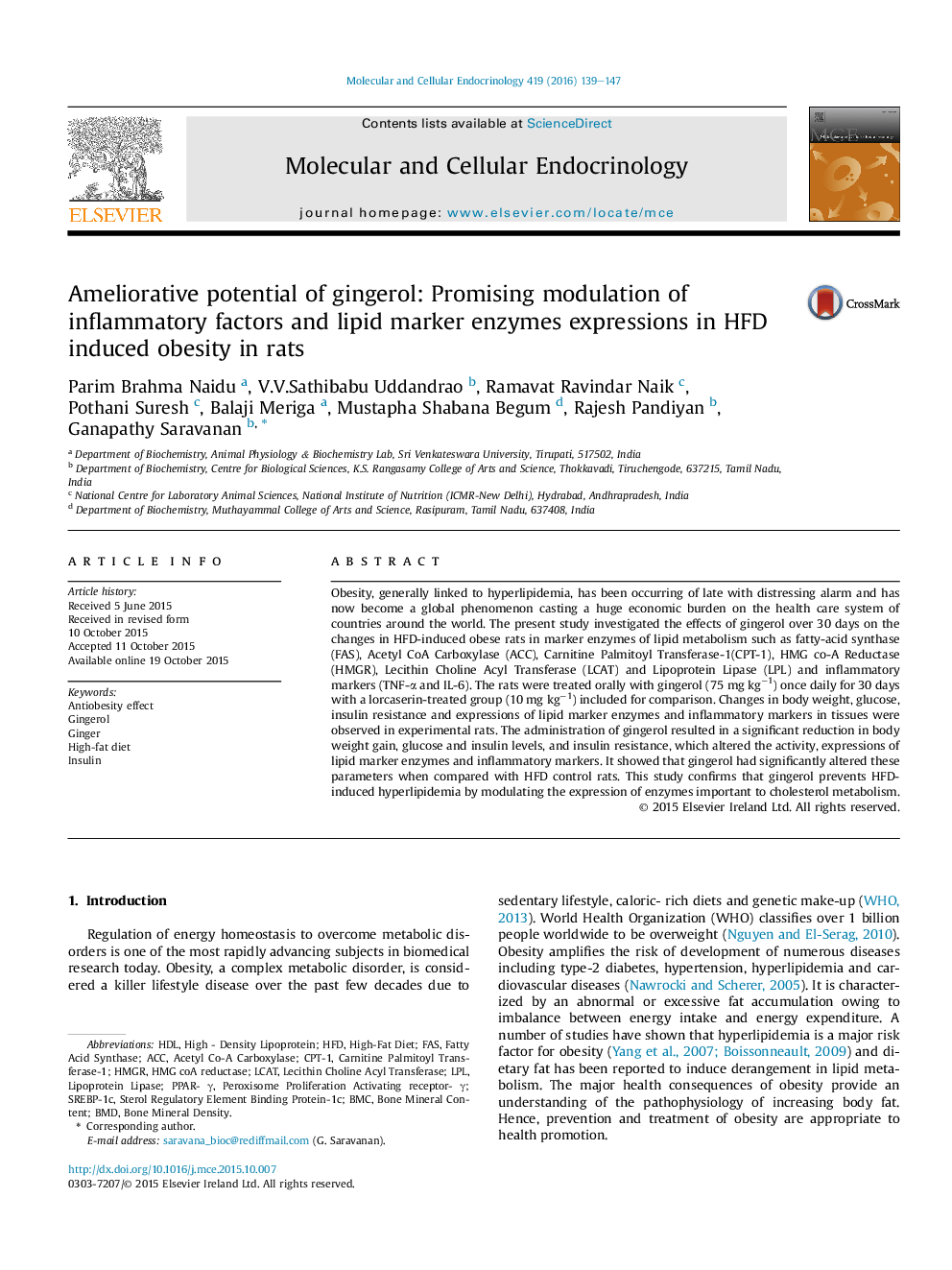| Article ID | Journal | Published Year | Pages | File Type |
|---|---|---|---|---|
| 2195720 | Molecular and Cellular Endocrinology | 2016 | 9 Pages |
•Gingerol, a volatile compound derived from ginger.•We evaluate the protective effect Gingerol consumption against HFD induced obesity.•Gingerol reversed the elevated level of biochemical parameters caused by HFD.•Gingerol may constitute an alternative to synthetic drugs in obese model.
Obesity, generally linked to hyperlipidemia, has been occurring of late with distressing alarm and has now become a global phenomenon casting a huge economic burden on the health care system of countries around the world. The present study investigated the effects of gingerol over 30 days on the changes in HFD-induced obese rats in marker enzymes of lipid metabolism such as fatty-acid synthase (FAS), Acetyl CoA Carboxylase (ACC), Carnitine Palmitoyl Transferase-1(CPT-1), HMG co-A Reductase (HMGR), Lecithin Choline Acyl Transferase (LCAT) and Lipoprotein Lipase (LPL) and inflammatory markers (TNF-α and IL-6). The rats were treated orally with gingerol (75 mg kg−1) once daily for 30 days with a lorcaserin-treated group (10 mg kg−1) included for comparison. Changes in body weight, glucose, insulin resistance and expressions of lipid marker enzymes and inflammatory markers in tissues were observed in experimental rats. The administration of gingerol resulted in a significant reduction in body weight gain, glucose and insulin levels, and insulin resistance, which altered the activity, expressions of lipid marker enzymes and inflammatory markers. It showed that gingerol had significantly altered these parameters when compared with HFD control rats. This study confirms that gingerol prevents HFD-induced hyperlipidemia by modulating the expression of enzymes important to cholesterol metabolism.
